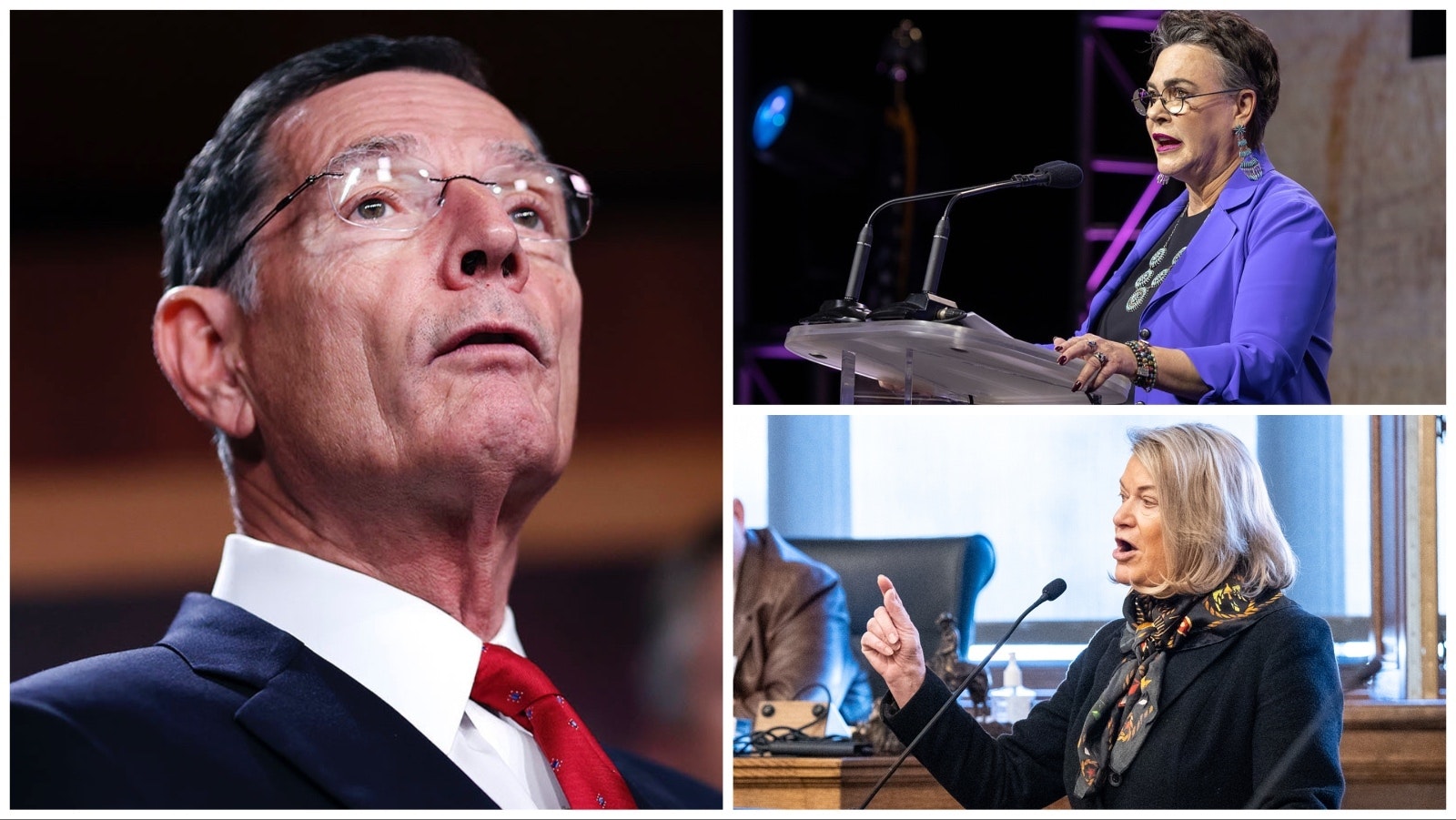In a rare splinter, U.S. Sen. John Barrasso broke off from fellow Wyoming Sen. Cynthia Lummis and U.S. Rep. Harriet Hageman on Wednesday night to vote in support of a critical military spending bill that was lambasted by some conservatives, saying he supports the military, not woke policies.
On Thursday morning, the House passed the National Defense Authorization Act (NDAA), pushing past a blockade from the far right over the exclusions of restrictions they wanted on military abortion access, transgender care, and racial diversity and inclusion policies. While the NDAA does not itself appropriate money, it authorizes the levels that spending is to be capped at and contains stipulations for how money can be used.
This next year’s authorization of military spending is $886 billion, up from $858 billion 2023.
Barrasso said in a Wednesday press release that he voted for the bill because of its overall support for the military.
Supports Military, Not ‘Woke’
The bill offers a 5.2% pay increase, the largest raise for military service members in more than 20 years.
“The National Defense Authorization Act ensures America has a strong military to keep us safe in an increasingly dangerous world,” Barrasso said. “Americans can rest easier knowing our military will continue to have the resources it needs to confront growing threats from China, Russia and other adversaries. I’m proud to vote to give our brave service members a much-deserved pay raise.”
Barrasso did not immediately respond to requests for comment about some of the other aspects of the bill that other Republicans cited as reasons why they wouldn’t vote for it.
In his press release, Barrasso said Republicans “secured key provisions that strike directly at certain woke Pentagon policies.”
This includes scaling back the Defense Department’s spending and focus on critical race theory and diversity issues. It also prohibits military funding to be used to host drag shows on military installations.
Another provision directs the Pentagon to consider reinstating U.S. troops who were forced out of the service after they refused to get the COVID-19 vaccine.
Abortions And Spying
On Monday, Hageman put out a statement saying she wouldn’t vote for the bill because she wasn’t consulted on the Senate’s version of the legislation.
She also cited the fact that the legislation retains President Joe Biden administration’s policy of reimbursing service members expenses who have to go out-of-state from where they are stationed to get abortions, a policy she asserts violates federal law. The House’s version of the bill outlawed this practice.
Lummis said she didn’t vote for the bill because it extends warrantless surveillance of foreign nationals allowed under the Foreign Intelligence Surveillance Act (FISA), which was given a four-month extension. The national security tool has become a target among some Republicans after revelations that the FBI was exploiting its loopholes to also spy on Americans, part of a larger sense of distrust for the U.S. intelligence community among Republicans.
Hageman’s Judiciary Committee already passed a FISA extension bill that offered reforms aimed at blocking violations to the Fourth Amendment. Lummis co-sponsored the Government Surveillance Accountability Act, which protects Americans from surveillance by making significant reforms to FISA and requiring warrants for government purchases of private data from data brokers.
“I cannot knowingly support legislation that erodes the people of Wyoming’s right to privacy by rubber-stamping warrantless surveillance of American citizens under FISA,” Lummis said in a Wednesday press release. “I will not enable the FBI, CIA and NSA to use back-door channels to take away your freedoms, which is why I could not support this extension in the NDAA.”
Money For Missiles
Barrasso was joined by 42 other Republicans in supporting the bill, which passed the Senate 87-13.
NDAA passed through the House on a 310-118 vote, with 73 Republicans and 45 Democrats voting against it.
Barrasso also mentioned that the bill provides $183 million for intercontinental ballistic missile (ICBM) and nuclearization modernization projects at F.E. Warren Air Force Base in Cheyenne.
“Energy security is national security,” he said. “The NDAA includes my legislation to counter Russia’s energy monopoly. My bill ensures our nuclear fuel supply chain begins with American uranium and ends with American fuel. Wyoming energy workers are ready to deliver.”
Barrasso successfully added amendments with Minnesota Democratic Sen. Amy Klobuchar that require the Air Force to maintain at least 271 C-130 aircraft and refurbish and maintain no fewer than 150 ICBM silos.
He also passed amendments that prioritize increasing domestic production of low-enriched uranium for existing reactors and accelerating efforts to ensure the availability of high-assay, low-enriched uranium for advanced reactors.
Another Barrasso amendment requires the administration to combat “blood batteries” by establishing a global cooperative framework to end human rights abuses, forced labor and exploitation of child labor related to critical mineral mining around the world.
Leo Wolfson can be reached at leo@cowboystatedaily.com.





